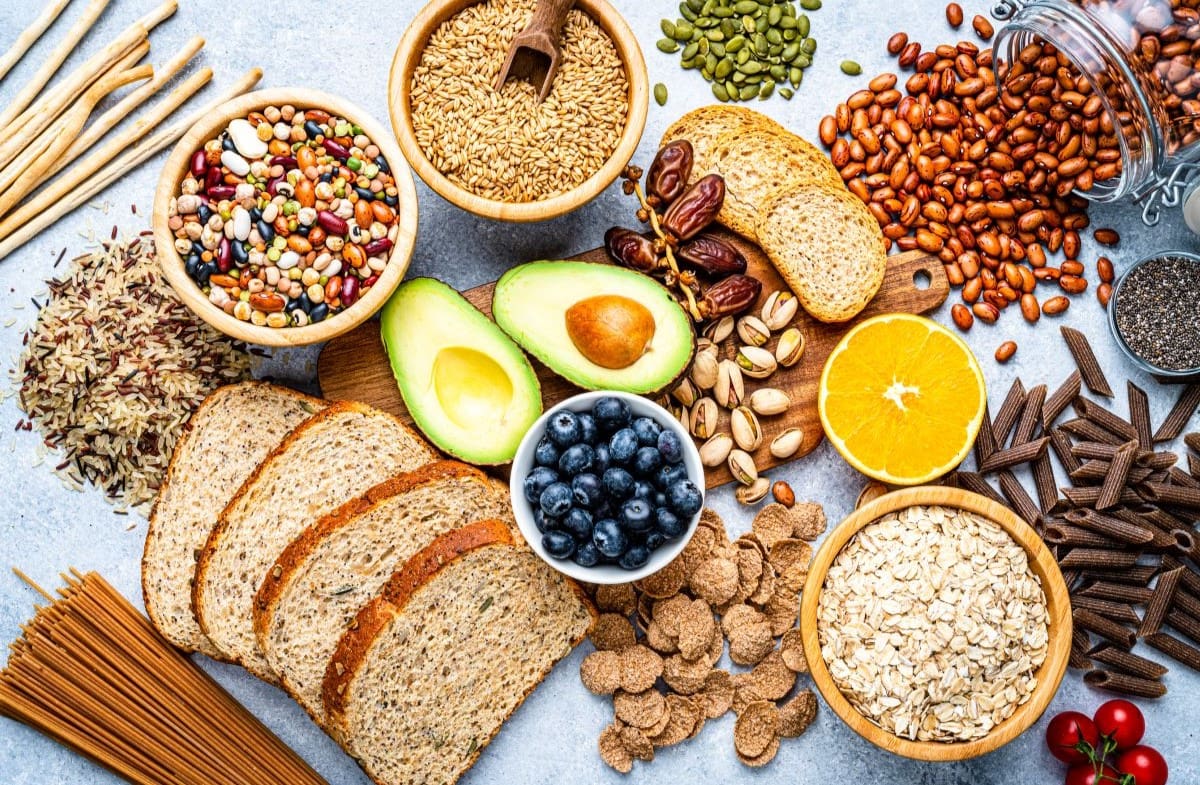
Why should you care about fiber-rich foods? Fiber is essential for a healthy diet. It helps with digestion, keeps you feeling full longer, and can even lower cholesterol levels. Eating fiber-rich foods can prevent constipation and reduce the risk of developing heart disease, diabetes, and certain types of cancer. Plus, they often come packed with vitamins, minerals, and antioxidants. From fruits and vegetables to whole grains and legumes, there are plenty of delicious options to choose from. Incorporating more fiber into your meals doesn't have to be difficult or boring. Ready to learn more? Here are 30 facts that will make you appreciate the power of fiber-rich foods even more!
What is Fiber?
Fiber is a type of carbohydrate that the body can't digest. It helps regulate the body's use of sugars, keeping hunger and blood sugar in check. There are two types: soluble and insoluble.
- Soluble fiber dissolves in water, forming a gel-like substance. It can help lower blood cholesterol and glucose levels.
- Insoluble fiber doesn't dissolve in water. It helps food move through the digestive system, promoting regularity and preventing constipation.
Benefits of Fiber
Fiber offers numerous health benefits. Here are some key advantages of including fiber in your diet.
- Promotes digestive health by adding bulk to the stool, making it easier to pass.
- Helps control blood sugar levels by slowing the absorption of sugar, which can benefit people with diabetes.
- Aids in weight management by making you feel full longer, reducing overall calorie intake.
- Lowers cholesterol levels by binding with cholesterol particles in the digestive system and removing them from the body.
- Reduces the risk of colorectal cancer by keeping the digestive system clean and healthy.
- Supports heart health by lowering blood pressure and reducing inflammation.
Sources of Fiber
Incorporating a variety of fiber-rich foods into your diet is essential. Here are some excellent sources of fiber.
- Fruits like apples, bananas, oranges, and berries are high in fiber.
- Vegetables such as carrots, broccoli, and Brussels sprouts provide a good amount of fiber.
- Whole grains like oats, brown rice, and whole wheat bread are excellent fiber sources.
- Legumes including beans, lentils, and chickpeas are packed with fiber.
- Nuts and seeds such as almonds, chia seeds, and flaxseeds offer a fiber boost.
- Fiber supplements can help if you're not getting enough from food, but it's best to get fiber from natural sources.
Fiber and Weight Loss
Fiber can play a significant role in weight loss. Here's how it helps.
- Increases satiety by making you feel full longer, reducing the likelihood of overeating.
- Reduces calorie absorption by binding with fat and sugar molecules, preventing them from being absorbed.
- Promotes healthy gut bacteria which can influence weight by affecting how food is digested and nutrients are absorbed.
- Lowers overall calorie intake by replacing high-calorie, low-fiber foods with low-calorie, high-fiber options.
Fiber and Heart Health
A diet high in fiber can benefit your heart. Here are some ways fiber supports cardiovascular health.
- Lowers blood pressure by improving blood vessel function and reducing inflammation.
- Reduces LDL cholesterol (the "bad" cholesterol) by binding with cholesterol in the digestive system.
- Decreases the risk of heart disease by improving overall heart function and reducing risk factors.
- Improves blood lipid levels by increasing HDL cholesterol (the "good" cholesterol) and lowering triglycerides.
Fiber and Digestive Health
Fiber is crucial for maintaining a healthy digestive system. Here are some digestive benefits of fiber.
- Prevents constipation by adding bulk to the stool and promoting regular bowel movements.
- Reduces the risk of diverticulitis by keeping the digestive system clean and reducing inflammation.
- Supports a healthy gut microbiome by providing food for beneficial bacteria in the gut.
- Helps prevent hemorrhoids by reducing strain during bowel movements.
Fiber and Disease Prevention
A high-fiber diet can help prevent various diseases. Here are some ways fiber contributes to disease prevention.
- Lowers the risk of type 2 diabetes by improving blood sugar control.
- Reduces the risk of stroke by improving heart health and reducing inflammation.
- Decreases the risk of certain cancers such as colorectal cancer by promoting a healthy digestive system.
- Helps prevent kidney stones by reducing the absorption of calcium in the kidneys.
Fiber Facts: The Final Word
Fiber is a powerhouse for your health. It keeps your digestive system running smoothly, helps control blood sugar levels, and even lowers cholesterol. Eating fiber-rich foods like fruits, vegetables, whole grains, and legumes can make a big difference in your overall well-being. Plus, fiber helps you feel full longer, which can aid in weight management.
Don't forget, there are two types of fiber: soluble and insoluble. Both are important, so aim for a mix in your diet. Soluble fiber dissolves in water and can help lower glucose levels and blood cholesterol. Insoluble fiber doesn't dissolve in water and helps food move through your digestive system.
So, next time you're planning your meals, think about adding more fiber. Your body will thank you!
Was this page helpful?
Our commitment to delivering trustworthy and engaging content is at the heart of what we do. Each fact on our site is contributed by real users like you, bringing a wealth of diverse insights and information. To ensure the highest standards of accuracy and reliability, our dedicated editors meticulously review each submission. This process guarantees that the facts we share are not only fascinating but also credible. Trust in our commitment to quality and authenticity as you explore and learn with us.


